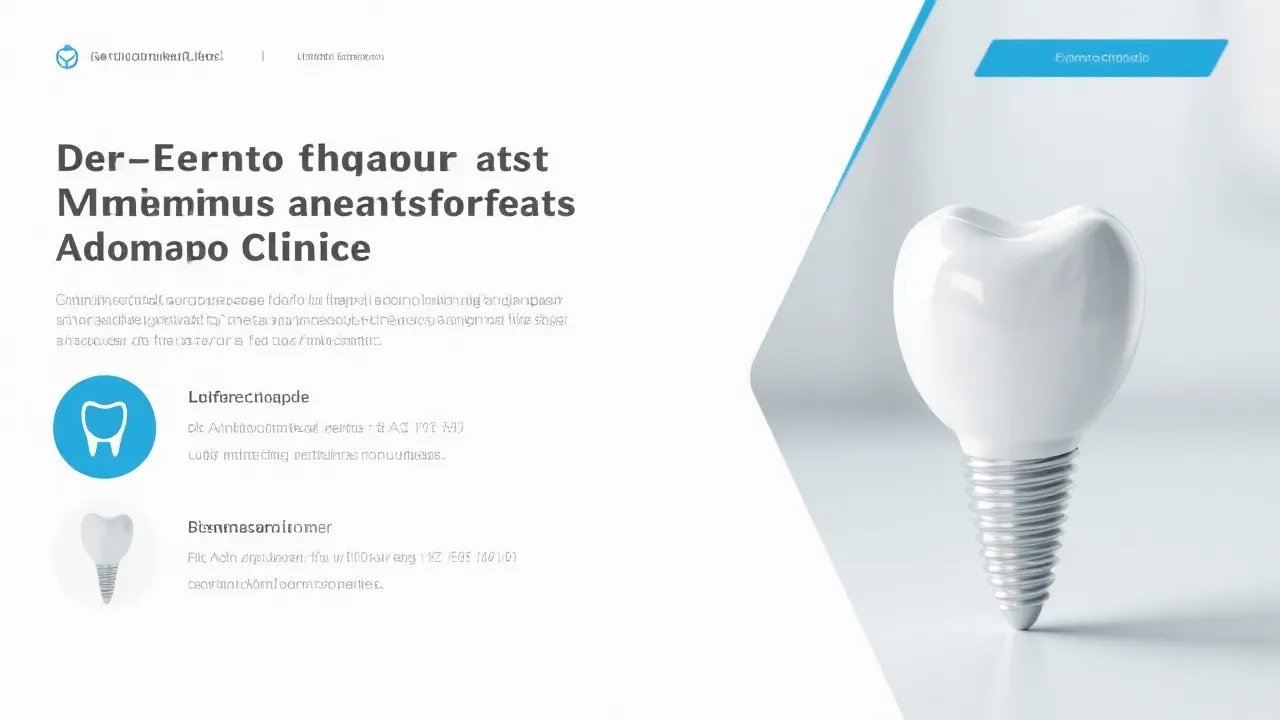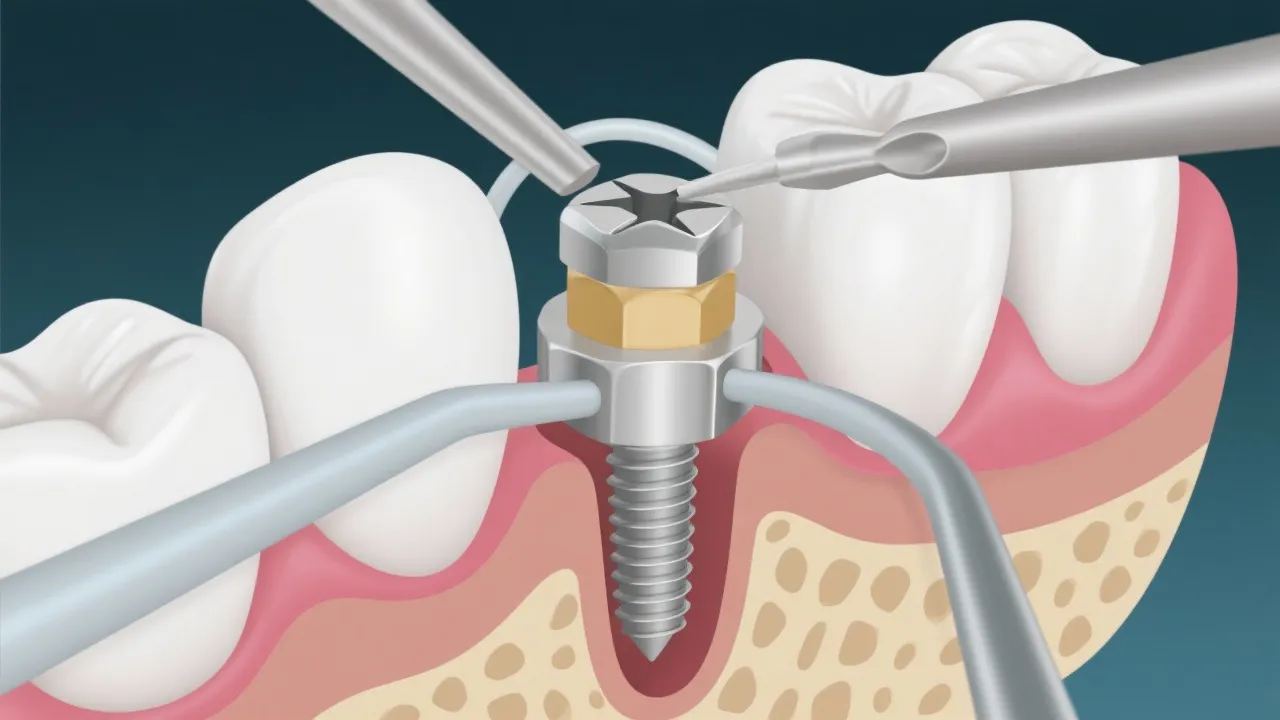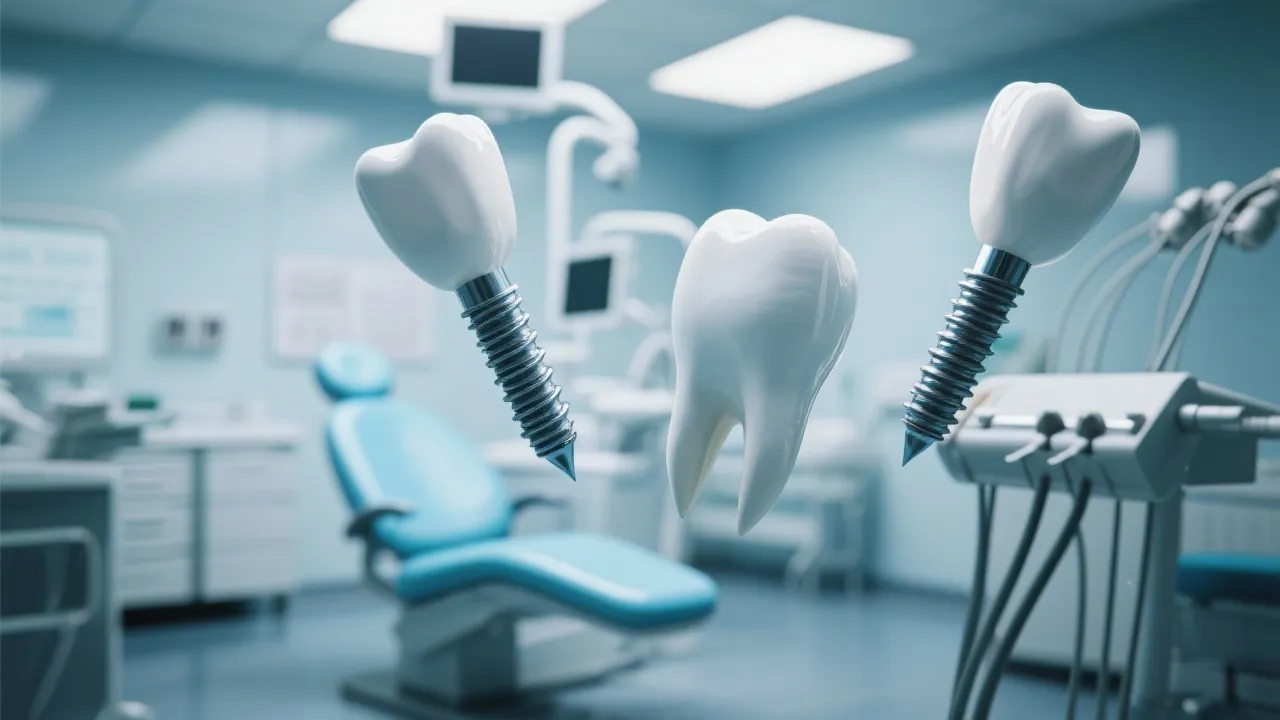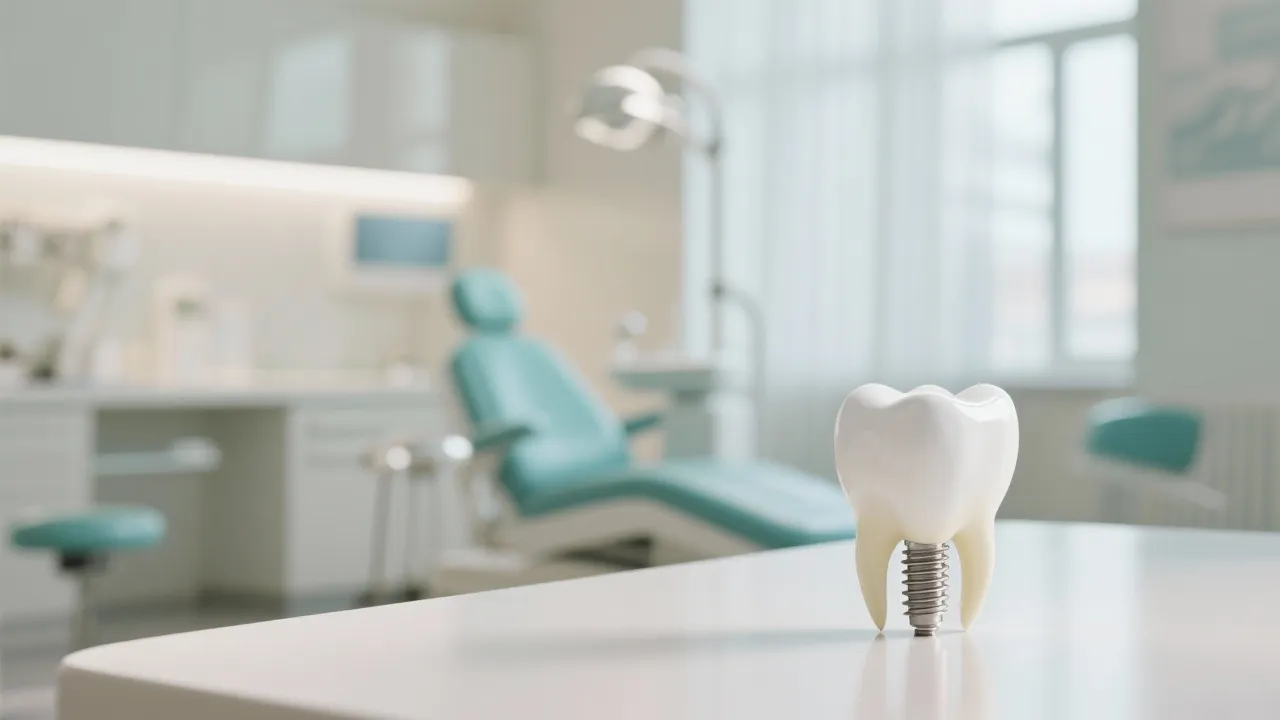Exploring Dental Implant Solutions Nearby
This comprehensive guide explores the benefits and considerations of dental implants, focusing on the availability of dental implant services nearby. Dental implants serve as artificial roots to replace missing teeth and are highly beneficial for oral health and aesthetics. With a surge in demand for cost-effective dental solutions, understanding local options becomes vital for prospective patients.

Introduction to Dental Implants
Dental implants have emerged as a revolutionary option in dental care, providing a permanent solution for replacing missing teeth. These implants function as artificial roots, supporting prosthetic teeth, and have become increasingly popular due to their durability and resemblance to natural teeth. For those considering dental implants, understanding the options available nearby is crucial for making informed decisions.
Understanding Dental Implants
Dental implants are titanium posts surgically positioned into the jawbone beneath the gum line. Once in place, they allow your dentist to mount replacement teeth or bridges. Unlike dentures, implants are permanent and do not slip when speaking or eating. They help preserve bone health and align jaw structure, improving overall oral health.
The procedure for placing dental implants is methodical and ensures the highest level of integration with the patient's jawbone. The titanium used is biocompatible, which means it works in harmony with the body and promotes optimal osseointegration—the process where the bone grows around and fuses with the implant, securing it firmly in place.
In addition to their practical benefits, dental implants also have aesthetic advantages. They restore the natural appearance of teeth and improve a patient's confidence when smiling and speaking. The customization option available with dental implants allows them to blend seamlessly with existing teeth, ensuring a natural look.
The Anatomy of Dental Implants
Dental implants consist of three main components: the implant itself, the abutment, and the crown. Understanding these components provides insight into how dental implants function:
- Implant: This is the titanium screw that is surgically placed into the jawbone. Its primary purpose is to serve as an artificial root for the replacement tooth.
- Abutment: This component is attached to the implant after osseointegration is complete. The abutment serves as a connector between the implant and the crown.
- Crown: The crown is the visible part of the dental implant—the replacement tooth that resembles the natural teeth in both function and appearance. Crowns can be made from various materials, including porcelain, ceramic, or a combination, depending on the desired aesthetic and functional properties.
Cost-Effective Dental Implant Options
Affording dental implants can be a significant concern; however, there are various ways individuals can reduce costs. Many clinics offer affordable service options or dental financing plans, spreading the cost across manageable payments. Some dental offices run special promotions or discounts for new patients, making it easier to access these life-changing procedures.
Furthermore, insurance coverage often varies significantly between plans. Some dental plans offer partial coverage for implants, while others may not include them at all. It is advisable for patients to thoroughly review their insurance policies or speak with their providers to clarify coverage details. Additionally, health savings accounts (HSAs) or flexible spending accounts (FSAs) can be used for dental expenses, allowing patients to set aside pre-tax dollars to cover these costs.
| Website | Specialty |
|---|---|
| Dental Views | Low-cost dental implant solutions |
| Atlantic Dental Group | Comprehensive dental services |
| DentaVacation | Dental tourism for affordable care |
Source: www.dentalviews.com, www.atlanticdentalgrp.com, www.dentavacation.com
How to Get Dental Implants Nearby at Low Cost
For those seeking affordable dental implants nearby, consider local dental schools that offer services at reduced rates. Dental students often provide care under the supervision of experienced faculty, allowing patients to access high-quality dental services at lower costs. Smaller clinics may also have personalized plans that provide flexible payment options, making it easier for patients to budget for their care.
Dental tourism is another increasingly popular option for patients looking to save money on implants. This approach involves traveling to a nearby country where dental care is more affordable and often of high quality, allowing for significant savings. Popular dental tourism destinations include Mexico, Costa Rica, and Colombia, where qualified dentists offer competitive prices for implants.
Moreover, many clinics provide all-inclusive packages that cover the cost of travel, accommodation, and dental procedures, effectively streamlining the process for patients. Patients seeking affordable dental implants should conduct thorough research, reading reviews and experiences from other patients to make an informed decision.
Cost Comparison of Dental Implants Across Regions
Here’s a comparison of estimated costs for single dental implants in various countries:
- United States (US): $3,000 - $6,000 USD
- United Kingdom (GB): £2,000 - £2,500 GBP
- Australia (AU): AU$3,500 - AU$6,500 AUD
- Canada (CA): CA$3,000 - CA$5,500 CAD
- Spain (ES): €1,500 - €2,500 EUR
- Brazil (BR): R$3,000 - R$8,000 BRL
- Portugal (PT): €1,000 - €2,000 EUR
This cost disparity is largely attributed to local economic conditions, healthcare regulations, and the cost of living in different regions. Patients should always consider the qualifications and experience of the dental professionals performing the procedures in addition to the cost, as these factors can influence the outcome of the dental implant procedure.
FAQs About Dental Implants
What are the phases involved in getting dental implants? The process involves several phases, including:
- Initial consultation: Assessment of oral health, discussing expectations, and evaluating suitability for implants.
- Surgical placement of the implant: The implant is placed into the jawbone under local anesthesia.
- Osseointegration: This phase allows the bone to heal around the implant, usually taking several months.
- Abutment placement: After healing, an abutment is attached to the implant.
- Crown placement: Finally, the custom-made crown is fitted onto the abutment.
Are dental implants painful? The procedure is conducted under local anesthesia, minimizing discomfort. Post-surgery, mild discomfort is usually managed with prescribed medication. Many patients report that the implant placement is less uncomfortable than expected, frequently likening it to a standard dental extraction rather than a more invasive procedure.
Who qualifies for dental implants? Suitable candidates include individuals with healthy gums, sufficient bone density to support the implants, and those committed to maintaining good oral hygiene practices. Certain medical conditions or lifestyle choices, such as uncontrolled diabetes or smoking, may affect eligibility, and a thorough assessment with a dental professional is essential.
How long do dental implants last? With proper care and maintenance, dental implants have the potential to last a lifetime. Regular dental check-ups, good oral hygiene practices, and a balanced diet contribute significantly to ensuring the longevity and health of implants.
Benefits of Dental Implants
In addition to providing a permanent solution for tooth loss, dental implants offer numerous other benefits:
- Improved oral health: Unlike traditional bridges that can require alteration of adjacent teeth, dental implants operate as standalone structures, preserving the integrity of surrounding teeth.
- Enhanced functionality: Implants restore full chewing capacity which increases dietary options and improves digestion.
- Increased confidence: With implants closely mimicking the look and feel of natural teeth, patients often feel more comfortable and confident in social situations.
- Bone preservation: Implants stimulate the jawbone, preventing bone loss that frequently occurs after tooth loss.
- Convenience: Dental implants eliminate the need for messy adhesives often required with dentures, and they require no special cleaning solutions; patients can care for them just like their natural teeth.
Potential Risks and Complications
While dental implants are considered safe and effective, some potential risks may include:
- Infection: As with any surgical procedure, there’s a risk of infection at the implant site.
- Nerve damage: Improper placement may lead to nerve damage, resulting in pain, numbness, or tingling in surrounding areas.
- Sinus problems: If implants are placed in the upper jaw, there may be a possibility of puncturing the sinus cavity, which can lead to complications.
- Implant failure: In rare cases, implants may not integrate properly with the bone due to several factors including poor dental hygiene, lack of bone density, or chronic illness.
It’s essential for prospective patients to discuss these risks with their dental professionals thoroughly before proceeding, ensuring that they have a comprehensive understanding of the procedure, recovery expectations, and any safeguarding measures they can take to promote a successful outcome.
Conclusion
Dental implants represent a remarkable advancement in dental care, offering a long-lasting and natural-looking alternative to traditional dentures or bridges. By exploring affordable options nearby, patients can pursue these benefits without excessive financial burden. The multifaceted advantages of dental implants—including improved oral health, enhanced confidence, and the preservation of jawbone structure—underscore their value as an investment in overall well-being.
Ultimately, it's vital for individuals considering dental implants to consult with dental professionals to receive personalized advice tailored to their unique situations, allowing them to make the best decisions for their dental health and future.
Disclaimer: 1) The information provided is based on online resources as of October 2023 and may be subject to change. 2) Dental implant prices mentioned are approximate and can vary significantly based on location, clinic, and the expertise of the dental professional.
References:
-
1

Reducing Costs and Enhancing Technology in Solar Panels
-
2

Affordable Life Insurance Options for Seniors
-
3

Comprehensive Guide to Choosing the Right Smartphone
-
4

Unlock Affordable Online Learning: A Seniors’ Guide to Economical Educational Opportunities
-
5

Discover the Keys to Landing Your Perfect Work-from-Home Job: An Essential Guide










